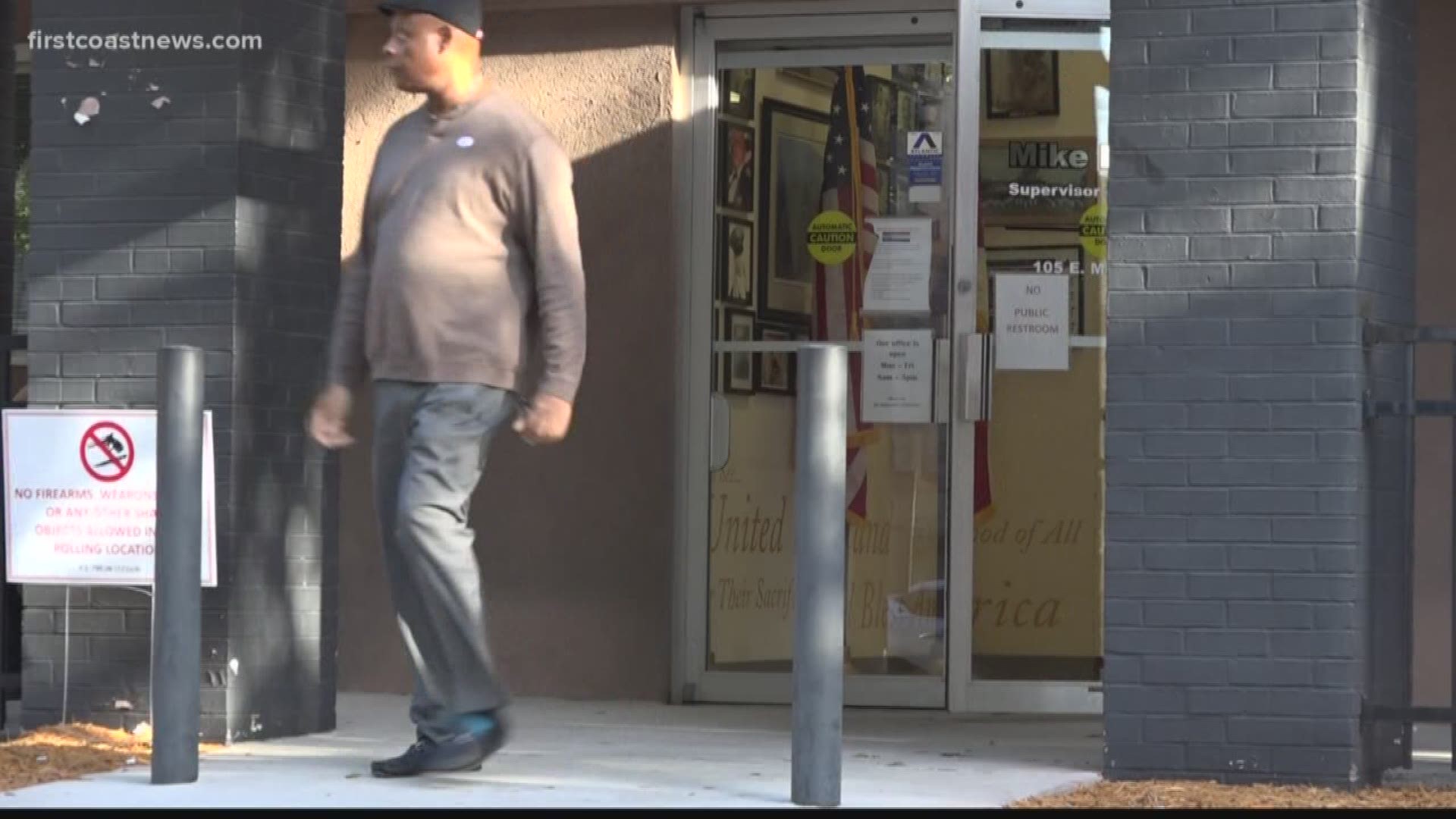If you already voted, or have seen a sample ballot for Tuesday’s election, you may have noticed that Republican candidates are listed first.
You might think that was a decision made by Republicans.
But you’d be wrong.
The rule that currently gives Republicans top billing is actually a creation of Democrats. Back in 1951, when Democrats dominated Florida politics and were confident things would stay that way, they passed a law giving ballot primacy the party that won the previous governor’s race.
For that last 20 years, they’ve watched as their law has largely benefited the opposing party.
Dr. Michael Binder, political science professor at the University of North Florida, says -- at least for the past few decades -- Republicans have enjoyed top billing.
“The ordering of the party is determined by the party that got the highest number of votes in the previous gubernatorial election,” he says. “Democrats are second behind the Republicans.”
The order can make a difference, especially in races where there isn’t a lot of name recognition. Earlier this year, Democrats sued to undo the law, and replace it with a randomized ballot order, as used in many other states. Calling the law a “thumb on the scale of elections,” the lawsuit said being the first candidate carries an advantage of between 1.9 and 2.7 percentage points
Binder believes the advantage is closer to 1 percent -- but still consequential, especially in Florida.
“A percentage point could mean the difference between winning and losing, just by where their name is on the ballot,” he says. “There is a certain advantage to that.”
And narrow margins are Florida’s trademark. Rick Scott won his governor’s seat – twice -- by a single percentage point. In 2016, President Trump carried Florida by 1.2 percentage points.
Those close margins mean Tuesday’s outcome won’t just affect Florida. It could potentially impact the next presidential election. If Democrat Andrew Gillum defeats Republican Ron DeSantis -- in what looks to be a very close race -- the next ballot will flip: Democrats first, Republicans second.
“If Democrats can win the governor’s race, that’s going to put them at the front of the line for the ballot listing for 2020 -- and that’s something people have a real interest in,” says Binder. “That could potentially mean something.”

